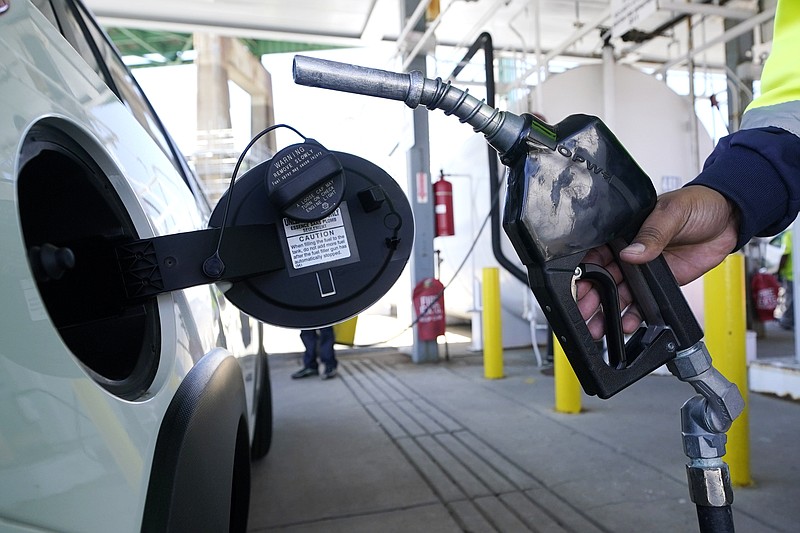The average gasoline price in Arkansas has set records each day since May 25 and reached an all-time high of $4.54 per gallon on Monday.
"We first passed the previous record from July of 2008 on May 11 when the statewide average [price per gallon] reached $3.99," AAA spokesperson Nick Chabarria said. "It looks like we're seeing Arkansas set or tie a record high each day since May 25."
Average gas prices in Arkansas are up 14 cents from a week ago and up 53 cents from a month ago, according to AAA.
Gas was just $2.77 a gallon in Arkansas a year ago.
"It's a big swing, that's for sure. Of course these are trends we're seeing nationwide as well," Chabarria said.
The national average price for gas is at an all-time high of $5.01 per gallon; the highest AAA has seen since the North American motor club federation first began collecting pricing data in 2000.
"We're seeing historically high gas prices in Arkansas and around the country right now," Chabarria said. "The main two driving factors behind the higher prices that we've seen really all year are the economic recovery from the pandemic as well as the ongoing Russian war with Ukraine. We've been seeing gas prices rise steadily to start 2022, of course in the last couple of months, we've really seen prices increase significantly."
The cheapest gas prices can be found mostly in central Arkansas, while the highest prices for gas are being seen in southwest and northwest Arkansas.
The average gas price Monday in the Fayetteville-Springdale-Rogers area was $4.59 a gallon, compared to $4.47 in Little Rock-North Little Rock, according to AAA.
"Generally speaking, our main message for drivers is expect [gas] prices to remain elevated this summer, expect to continue to see record highs set at least in the short term," Chabarria said.
An estimated 47.7 million people traveled during the Fourth of July weekend last year, a substantial 40% increase in travelers from 2020, Chabarria said. They'll face much steeper gas prices this year.
Typically in the fall season, gas prices will decline because of lower demand and then in winter, because winter-blend gasoline is cheaper to produce than summer-blend gasoline, he said.
Decreased supply and higher demand for gas could mean prices at the pump remain elevated in the near future, particularly as demand in the U.S. is going to remain robust in summer when there is typically an uptick in travel.
"I actually expect us to see high gas prices for a while, barring something dramatic that happens with Biden visiting Saudi Arabia," Mervin Jebaraj, director for the Center for Business and Economic Research at the University of Arkansas, said.
The White House plans to announce soon that President Joe Biden will travel to Saudi Arabia, the Wall Street Journal reported Sunday.
Russia is one of the top three oil producers in the world after the U.S. and Saudi Arabia, and the world's largest exporter of oil.
Russia provided roughly 10% of the world's supply of oil, and though the United States produces most of its oil domestically, 10% of oil imported into the U.S. came from Russia before the U.S. banned Russian oil imports earlier this year, the New York Times reported in March.
The European Union announced plans to embargo most Russian oil imports by the end of 2022 in an agreement that covers more than two-thirds of oil imports from Russia, the Associated Press reported in late May.
"While the U.S. didn't necessarily import all that oil from Russia prior to our ban on Russian oil imports, when you're talking about crude oil, you're talking about a global market, so you've got to look at what's happening around the globe, not just our consumption or production here at home. It's also a speculative market and prices are really responding to the uncertainty in oil supply," Chabarria said.
A barrel of oil now costs more than $120, almost double in price compared to last August, and increasing oil demand is outpacing global supply, according to a AAA news release Monday.
Energy Information Administration data showed that total domestic gasoline stocks decreased by 800,000 million barrels to 218.2 million last week, while gasoline demand grew from 8.98 million barrels per day to 9.2 million, the release said.
